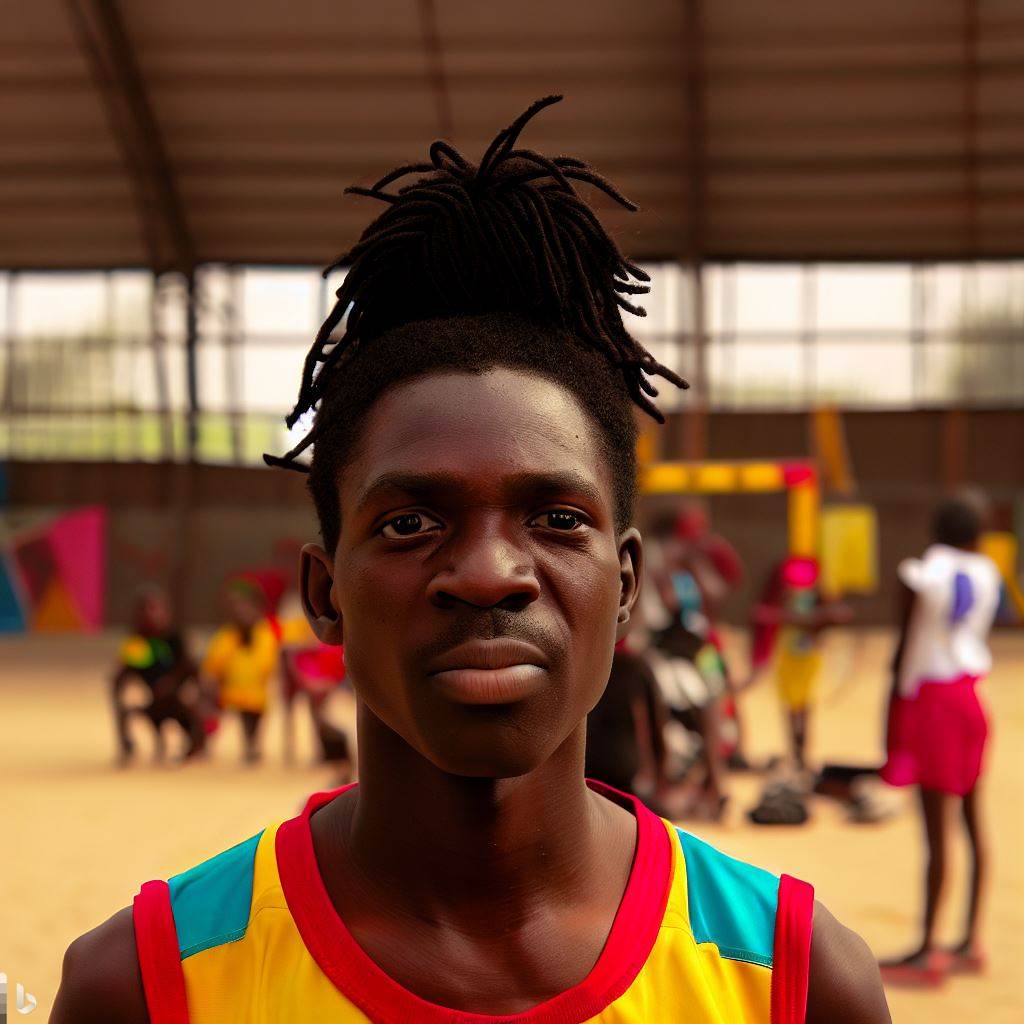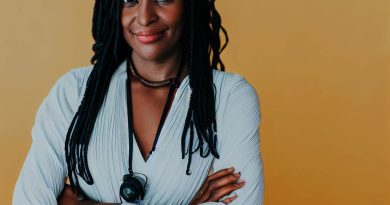Circus Performance Schools and Training in Nigeria
Last Updated on January 26, 2024
Introduction
A. Overview of the circus performance industry in Nigeria
The circus performance industry in Nigeria has been steadily growing in recent years.
Circus performance schools and training play a crucial role in nurturing talent and developing skills.
The circus performance industry in Nigeria has experienced significant growth in recent years.
With the rise in popularity of street performances, festivals, and cultural events, the demand for skilled circus performers has also increased.
Circus performance schools and training programs have emerged as vital institutions in Nigeria, providing aspiring performers with the necessary skills and knowledge to excel in this unique art form.
These schools not only teach the technical aspects of circus performance but also foster creativity, discipline, and teamwork.
B. Importance of circus performance schools and training
Attending a circus performance school offers numerous benefits to aspiring artists.
Firstly, it provides a structured learning environment where students can learn from professional trainers who are experienced in the field.
This guidance allows them to develop their artistry and enhance their performance abilities.
Secondly, circus schools offer a diverse range of training programs that cater to different interests and skill levels.
From aerial acrobatics to juggling and clowning, students have the opportunity to explore various disciplines and find their niche within the circus industry.
Moreover, circus performance schools often serve as a platform for collaboration and networking.
Students have the chance to connect with like-minded individuals and industry professionals, creating opportunities for future collaborations and career advancement.
History of Circus Performance Schools in Nigeria
A. Origins and development
Nigeria has a rich history of circus performance, with the art form dating back centuries.
The traditional Nigerian circus, known as “Igunnuko,” was a prominent cultural display that combined acrobatics, fire-eating, and music.
However, formal circus performance schools and training programs in Nigeria started to develop much later.
In the early 1980s, a few individuals recognized the potential of circus as a performing art and began laying the foundation for circus education.
The establishment of the National Theatre in Lagos played a pivotal role in the development of circus schools.
The theater provided a platform for aspiring circus performers, fostering interest and creating a demand for professional training.
Seeing this growing interest, a group of Nigerian circus performers and enthusiasts came together and founded the first circus school in Nigeria, the Nigerian National Circus School, in the late 1990s.
B. Pioneering schools and their contributions
- Nigerian National Circus School (NNCS): The NNCS was the first formal circus school in Nigeria.
It provided comprehensive training programs in various circus disciplines such as acrobatics, juggling, aerial arts, and clowning.
The school produced many skilled circus performers who went on to perform nationally and internationally. - Institute of Nigerian Circus Arts (INCA): Building on the success of the NNCS, the INCA was established to further promote circus arts in Nigeria.
The school offered specialized training in specific circus disciplines and also collaborated with international circus schools for exchange programs. - Lagos State Circus School (LSCS): Recognizing the importance of circus education, the Lagos State Government established the LSCS.
The aim was to provide accessible training opportunities for aspiring circus performers from different socio-economic backgrounds. - Centre for Creative Arts and Circus (CCAC): As the popularity of circus arts grew in Nigeria, the CCAC emerged as a leading training center.
The school focused on enhancing the creative potential of students through multidisciplinary training in circus performance and other art forms. - Circus Performance Academies: In recent years, private circus performance academies have also been established in Nigeria.
These academies offer specialized training for individuals passionate about specific circus disciplines, such as trapeze or contortion.
These pioneering circus schools and training institutions have played a crucial role in shaping the circus performance landscape in Nigeria.
They have not only provided aspiring performers with formal training but have also created platforms for showcasing their talents.
Moreover, these schools have contributed to the preservation and promotion of Nigerian circus traditions, incorporating elements of the traditional “Igunnuko” circus into their training programs.
As circus performance continues to gain recognition as an art form in Nigeria, the history of circus schools and training programs serves as a testament to the growing interest and talent in this field.
With the support and investment in circus education, Nigeria is poised to produce world-class circus performers who can proudly represent the country on international stages.
Benefits of Circus Performance Schools and Training
A. Personal development and self-expression
- Circus performance schools and training provide individuals with a platform to enhance their personal development.
- Through circus training, individuals learn discipline, perseverance, and determination, which are invaluable life skills.
- By participating in circus performances, individuals are able to explore their creativity and express their unique identities.
- Circus training encourages self-confidence, as individuals learn to conquer challenges and showcase their talents.
- Individuals develop a sense of teamwork and collaboration, as circus performances require coordinated efforts and trust among performers.
B. Physical and mental health benefits
- Circus performance schools and training offer numerous physical health benefits.
- Regular circus training enhances flexibility, strength, and endurance, leading to improved overall fitness.
- Circus activities, such as acrobatics and aerial arts, promote body coordination and balance.
- Engaging in circus performances boosts cardiovascular health and helps manage weight.
- Circus training also promotes mental well-being by reducing stress levels and improving cognitive function.
- Being physically active in a fun and creative environment contributes to a positive mindset and improved self-esteem.
C. Enhancing creativity and artistic skills
- Participating in circus performance schools and training unleashes individuals’ artistic potential.
- Circus arts, such as juggling and clowning, allow individuals to explore unconventional and imaginative forms of expression.
- Through circus training, individuals acquire a heightened sense of body awareness and develop their own unique style.
- Circus performances blend various art forms, including dance, theater, and music, fostering a multidisciplinary approach to creativity.
- Individuals learn to think outside the box and embrace innovation, as circus arts constantly evolve with new techniques and acts.
- Circus training nurtures a deep appreciation for aesthetics, as performers strive to create visually captivating and emotionally engaging acts.
Circus performance schools and training in Nigeria offer numerous benefits for individuals seeking personal growth, physical fitness, and artistic development.
Through circus training, individuals develop important life skills such as discipline, perseverance, and teamwork.
The physical health benefits of circus activities are evident in improved flexibility, strength, and cardiovascular fitness.
Moreover, circus training provides an outlet for creative expression, enhancing artistic skills and fostering innovation.
Whether it is through acrobatics, juggling, or clowning, circus performances offer individuals a unique platform to unlock their potential, boost self-confidence, and cultivate a positive mindset.
Read: Traditional Elements in Modern Nigerian Music Production
Main Circus Performance Schools in Nigeria
A. Circus 9ja: Background, philosophy, and programs offered
Circus 9ja is one of the leading circus performance schools in Nigeria.
Founded in 2010, it aims to promote circus arts and create a vibrant performing arts community in the country.
The school’s philosophy revolves around the belief that circus arts can be a powerful tool to promote creativity, self-expression, and physical fitness.
Circus 9ja offers a wide range of programs for individuals of all ages and skill levels.
They provide training in various circus disciplines such as acrobatics, juggling, aerial arts, and fire performance.
The school also organizes workshops, camps, and performances to showcase the talents of their students and inspire others to pursue circus arts.
B. The Nest Collective: Background, philosophy, and programs offered
The Nest Collective is another renowned circus performance school in Nigeria.
It was established in 2012 with the goal of nurturing young artists and creating innovative performances.
The school’s philosophy revolves around the belief that circus arts can be a catalyst for social change and empowerment.
The Nest Collective offers a variety of programs that focus on physical training, creativity, and collaborative work.
They provide training in circus skills such as aerial arts, clowning, stilt-walking, and object manipulation.
The school also places great emphasis on the importance of storytelling and creating meaningful performances that connect with the audience.
C. Circus Arts Academy: Background, philosophy, and programs offered
Circus Arts Academy is one of the pioneering circus performance schools in Nigeria.
It was founded in 2005 and has since played a significant role in promoting circus arts in the country.
The school’s philosophy centers around the belief that circus arts can foster discipline, teamwork, and personal growth.
Circus Arts Academy offers a comprehensive range of programs for individuals of all ages and backgrounds.
They provide training in various circus disciplines including aerial arts, acrobatics, balance, and object manipulation.
The school also focuses on professional development, preparing students for careers in the circus industry through mentorship and performance opportunities.
In summary, Nigeria is home to several main circus performance schools that offer a wide range of programs.
Whether it’s Circus 9ja, The Nest Collective, or Circus Arts Academy, these schools are shaping the future of circus arts in the country.
Through their philosophies and programs, individuals of all ages and skill levels can explore the creative and physically demanding world of circus performance.
Read: Education and Training for Music Producers in Nigeria

Training Programs and Techniques
A. Introduction to different circus disciplines and skills
- Acrobatics: Learn various flips, jumps, and balancing techniques to amaze the audience.
- Aerial Arts: Master the art of performing on aerial silks, hoops, and trapezes.
- Juggling: Practice hand-eye coordination and learn to juggle various items with precision.
- Clowning: Develop your comedic timing, improvisation skills, and interact with the audience.
- Stilt Walking: Explore the world from a higher perspective and improve balance and coordination.
- Tightrope Walking: Enhance your balance and focus while walking on a thin wire high above the ground.
- Fire Eating and Breathing: Learn the techniques to safely perform these daring acts.
B. Specialized training techniques and methodologies
- Strength and Conditioning: Build a strong foundation through exercises targeting specific muscle groups.
- Flexibility Training: Increase your range of motion to perform acrobatic moves with ease.
- Body Awareness: Gain better understanding of your body and control over every movement.
- Performance Art: Learn to express yourself and captivate the audience through storytelling and emotions.
- Stage Presence and Confidence Building: Develop confidence to perform under the spotlight.
- Partner and Group Training: Practice coordination and synchronization with fellow performers.
- Equipment and Prop Handling: Acquire the skills to safely and effectively use circus equipment and props.
C. Importance of safety and injury prevention
- Safety Guidelines and Regulations: Understand and follow safety protocols to prevent accidents.
- Proper Warm-Up and Cool-Down: Protect your body from injuries by stretching and cooling down.
- Spotting and Safety Techniques: Learn how to support and protect your fellow performers during training.
- Injury Prevention Exercises: Strengthen specific areas prone to injuries and prevent accidents.
- First Aid Training: Be prepared to handle minor injuries and provide immediate assistance.
- Emergency Response: Familiarize yourself with emergency procedures in case of accidents.
- Mental Well-being: Focus on maintaining a healthy mindset to reduce the risk of accidents.
By providing training programs that introduce various circus disciplines and skills, circus performance schools in Nigeria enable aspiring artists to explore their passions and discover their strengths.
Through specialized training techniques and methodologies, students can develop the physical and artistic abilities required to excel in their chosen disciplines.
Moreover, emphasizing the importance of safety and injury prevention ensures that performers are equipped with the knowledge and skills needed to protect themselves and others.
Following safety guidelines and regulations, proper warm-up and cool-down routines, and practicing spotting techniques contribute to a safe training environment.
Additionally, injury prevention exercises and first aid training further enhance the well-being of circus performers.
Overall, circus performance schools in Nigeria provide comprehensive training programs and techniques to nurture the talent and skills of aspiring circus artists, while prioritising their safety and well-being.
Read: The Rise and Evolution of Music Production in Nigeria
Gain More Insights: An Insider’s View: Daily Life of a Nigerian Interpreter
Profiles of Successful Nigerian Circus Performers
Obinna Nwosu: Background, journey, and achievements
Obinna Nwosu is a renowned circus performer from Nigeria who has achieved great success in the industry.
He was born and raised in Lagos, Nigeria. At a young age, Obinna discovered his passion for circus performance and decided to pursue it as a career.
Obinna’s journey in the circus world began when he joined a local circus academy in Lagos.
He trained rigorously and honed his skills in various disciplines, including acrobatics, juggling, and aerial arts.
With determination and perseverance, Obinna quickly became one of the most promising talents in the academy.
His talent and dedication caught the attention of international circus troupes, and he was offered a scholarship to study circus arts in France.
Obinna seized this opportunity and moved to Europe to further his training and knowledge.
He attended prestigious circus schools and worked with renowned trainers, pushing himself to the limits and constantly improving his abilities.
After completing his studies, Obinna returned to Nigeria and started his own circus performance company.
He aimed to popularize circus arts in his home country and provide training opportunities for aspiring performers.
His company organized shows and workshops throughout Nigeria, inspiring a new generation of circus enthusiasts.
Obinna’s achievements in the circus industry have been remarkable.
He has performed in numerous prestigious events around the world, including the Monte Carlo Circus Festival and the Cirque du Soleil.
His unique blend of traditional Nigerian cultural elements with contemporary circus techniques has captivated audiences and earned him critical acclaim.
Olumide Akinwande: Background, journey, and achievements
Olumide Akinwande is another successful Nigerian circus performer who has made a name for himself in the industry.
Born in Abuja, Nigeria, Olumide developed an early interest in circus arts and decided to pursue it professionally.
Olumide’s journey in the circus world began when he joined a traveling circus troupe in Nigeria.
He trained under experienced performers and learned various disciplines, including fire eating, contortion, and stilt walking.
With his natural talent and hard work, Olumide quickly became a crowd favorite.
His skills and stage presence caught the attention of international circus companies, and he received multiple offers to perform abroad.
Olumide traveled to Europe, where he further refined his techniques and learned new acts. He trained with renowned circus performers and expanded his repertoire.
After gaining valuable experience overseas, Olumide returned to Nigeria and established his own circus school in Lagos.
He aimed to provide formal training and mentorship to aspiring performers in his home country.
His school became a hub for young talents to learn and develop their skills in a professional environment.
Olumide’s achievements in the circus industry are remarkable.
He has performed in various international festivals and events, dazzling audiences with his unique blend of acrobatics and traditional Nigerian dance.
Olumide’s performances have been praised for their energy, creativity, and cultural authenticity.
Ayo Ojo: Background, journey, and achievements
Ayo Ojo is a remarkable Nigerian circus performer who has achieved tremendous success in the industry.
Born and raised in Ibadan, Nigeria, Ayo discovered his passion for circus arts at a young age.
Ayo’s journey in the circus world began when he joined a local circus academy.
He trained diligently and mastered various disciplines, including aerial silks, hand balancing, and clowning.
Ayo’s dedication and talent quickly made him stand out among his peers.
His skills and showmanship gained recognition, and he was invited to perform in international circus festivals.
Ayo traveled to different countries, showcasing his unique acts and cultural influences.
He studied under renowned circus trainers and incorporated traditional Nigerian elements into his performances.
Upon returning to Nigeria, Ayo founded his own circus company, aiming to promote the art form and provide opportunities for aspiring performers.
He organized shows and workshops, showcasing the rich cultural heritage of Nigeria through circus performances.
Ayo’s achievements in the circus industry have been significant.
He has received numerous awards and accolades for his captivating performances and contribution to the development of circus arts in Nigeria.
Ayo continues to inspire and mentor young performers, ensuring a bright future for circus performance in Nigeria.
Read: Interviews with Nigeria’s Top Music Producers: Insight & Advice
Challenges and Opportunities in Circus Performance Education
In the field of circus performance education in Nigeria, there are several challenges and opportunities that need to be addressed.
This section will explore these factors and their implications for the development of circus training in the country.
A. Lack of awareness and support
- Limited understanding of the potential of circus education in Nigeria.
- Lack of support from the government and educational institutions.
- Insufficient promotion and exposure of circus performance schools in the country.
- Inadequate incentives for talented individuals to pursue a career in circus performance.
B. Funding and resource limitations
- Limited financial support for the establishment and maintenance of circus schools.
- Inadequate availability of specialized training equipment and facilities.
- Lack of qualified trainers and mentors due to limited funding for their recruitment.
- Difficulty in securing sponsorships and partnerships with relevant organizations.
C. Potential for growth and collaboration
- Emerging interest and demand for circus performance as an art form in Nigeria.
- Potential collaborations between circus schools and other artistic disciplines.
- Possibility of integrating circus education into mainstream educational curricula.
- Opportunities for international exchange programs and cultural exchange through circus education.
Despite the challenges faced by circus education in Nigeria, there are considerable opportunities for growth.
By recognizing and addressing these challenges, the field can thrive and contribute to the artistic and cultural landscape of the country.
One of the primary challenges is the lack of awareness and support for circus performance education.
Many Nigerians are not familiar with the potential of circus as an art form and its educational benefits.
This lack of understanding leads to limited support from the government and educational institutions, resulting in a scarcity of resources and opportunities for aspiring circus performers.
To address this, there is a need for increased promotion and exposure of circus performance schools in Nigeria, as well as the introduction of incentives to encourage talented individuals to pursue a career in this field.
Another significant hurdle is the lack of funding and resource limitations.
Establishing and maintaining circus schools require substantial financial investment, which is often lacking in Nigeria.
Additionally, the availability of specialized training equipment and facilities is limited, hindering the comprehensive development of circus performers.
To overcome these limitations, it is crucial to secure increased financial support for circus schools and facilitate partnerships with organizations that can provide necessary resources.
Despite these challenges, there are promising opportunities for growth and collaboration in circus performance education.
The increasing interest and demand for circus as an art form in Nigeria present opportunities for the field to expand and thrive.
Collaboration between circus schools and other artistic disciplines, such as dance or theater, can lead to innovative performances and enhance overall artistic development.
Conclusion
Recap of the significance of circus performance schools and training
Circus performance schools and training in Nigeria provide aspiring performers with invaluable opportunities to learn and hone their skills.
Encouragement for aspiring performers to explore opportunities in Nigeria
For those interested in the exciting world of circus performance, Nigeria offers a vibrant and growing scene that should not be overlooked.
Final thoughts and call to action
If you have a passion for circus performance, take advantage of the training and opportunities available in Nigeria.
Embrace the unique challenges and rewards of this art form and watch your dreams come alive.
Start your journey today!


